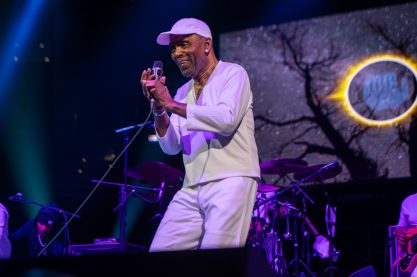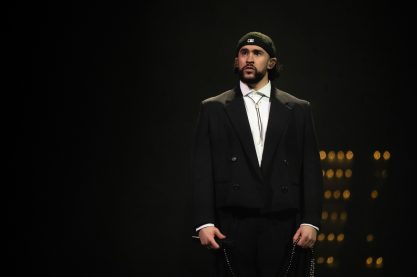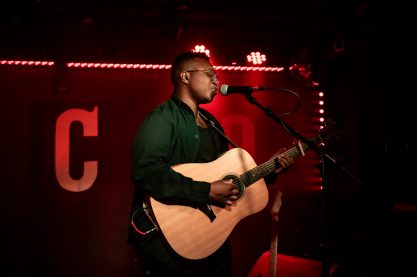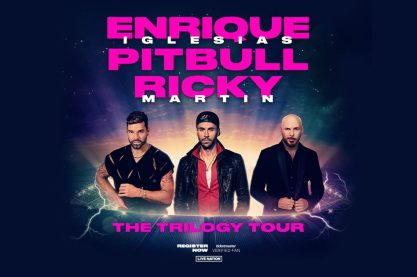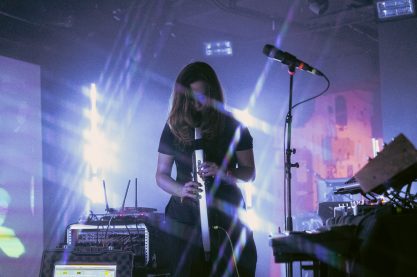Live
Get to Know: The Last Poets
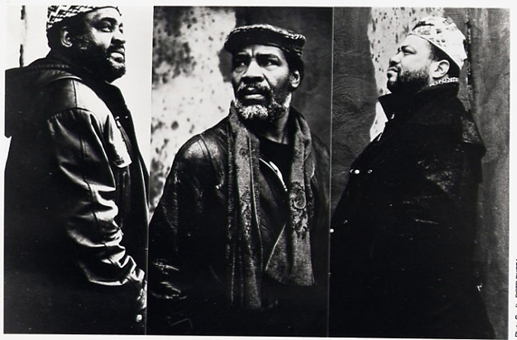
On July 19, 2010, I had the distinct honor of checking off a box on my 'bucket list' I didn't believe I'd ever have the opportunity to even imagine: I witnessed the raw effervescence of hip-hop's true godfathers, The Last Poets, at DC's own Blues Alley. It was such a powerful experience that it's taken me almost a month to process it, but I'm finally ready to share with you, dear Couch Sessions readers.
What do we know about these respected elders? Those who were there say the group emerged in Marcus Garvey Park on Malcom X's birthday, May 19, 1968. Those of us not yet born know their words and stylistic influence through hip-hop even if we don't realize it. To open the set, the group's percussionist, Don "Babatunde" Eaton, tapped out "A Thumb Prayer" on the congas, stating simply, "Heat is heard." franktalkdc whispered to me, "You hear that? That's the intro to Like Water for Chocolate."
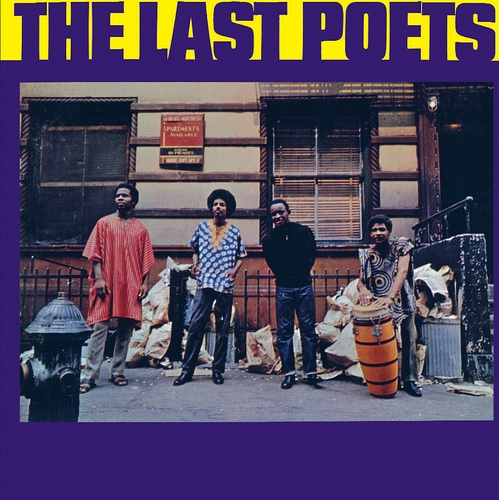
On History & Language: The Griot Sessions
The Last Poets shared that years have gone by (42 to be exact!) and "we're still here," and as far as language is concerned, the group rocks with "what [they] got." The concert began with the Poets narrating a community funeral of sorts for "those who have passed" or otherwise left the group--Black Hebrews in Ghana, Puerto Rican Afrikans, and so on. Their names whispered in and out of our ears and the drums somehow allowed us to be transported to new stories of the emcees' "shooting gallery" days, when guys would do drugs in "every possible vein; even in they d*cks." Wake up, world. The Poets have arrived; you are now entering a convoluted community dream.
The Last Poets have an inexplicable ethos. No matter what, how wild or ludicrous their statements, you believe them. They are brotherly (among themselves and with their audience), amusing, brilliantly simple and the chemistry is nothing short of perfect. The sentiment in the room lingered somewhere between healing and aching, as the Last Poets seemed to carry the wisdom and burden of an entire generation. Umar caught a woman crying out of the corner of his eye, stepped off stage and gave her a long, generous hug. These guys are completely unpretentious, although their apparent contempt for youth--who have "no respect for human life"--sometimes reveals their years.
On craftsmanship and that elusive 'thing' that makes music magic, Founding member, Abiodun Oyewole, explained with a laugh:
"If your poem wasn't speaking a language [the drum] could understand, it would never leave the duffel bag."
Following the introductory banter, the trio walked a fine line between insanity and genius throughout, first leading us in a call-and-response poem with eight words to be repeated at strategic points in the poem. Yet again, they branded their intentions as a group into the air: "We'll be baptized, advertised and posthumously mentioned," they rhymed, adding, "We're highly intelligent. In a very low way.... I was on crack when I wrote that poem... It's not funny, it's the truth."
Forgotten Muses
When discussing their own influences, the Last Poets cited Smokey Robinson's "My Girl," among others, and asked the crowd, "I got sunshine. On a cloudy day. When It's cold outside, I've got the month of May... What the f*ck is that but a poem?!" Umar Bin Hassan, Abiodun Oyewole, and Don "Babatunde" Eaton--the three Last Poets standing at Blues Alley after many reformations of the group over the years--reminded me immediately of all of the flowers whose roots are undeniably watered in Last Poets soil. Among these are Ceelo, Mos Def, Common and of course Goodie Mob. I swear, when they performed "Grenades in Their Eyes," I had a flash back to "Still Standing." If you imagine the low, deeply mournful intro to that track, you might get a hint of what it was like to be under the Poets' spell, whose aftershocks are only fully realized later.
I wanted to share with you what it was like to hear these songs live, the ones we know so deeply in our bones. They are all unfinished products whose spirit chokes you, caresses you, then releases you as shockingly as it snatched you up. "Niggaz Are Scared of Revolution" closed out the set after some pretty aggressive begging from the crowd. Its rhyme schemes exemplify life's repetition, the obviousness of it all so apparent that we often miss it. I found comfort in the Last Poets' mantras, repeated by the drummer and supporting emcee (depending on who was taking the lead on which song).
How the Last Poets View Hip-Hop: "The Revolution is a Personal Thing"
It just so happened that Babatunde was chillin' at the bar next to me after the show before the late set. I turned and struck up a conversation with him, and asked if he'd let me interview him. Even after he insisted, "Those guys do the talking. I talk with my hands," ten minutes later, I got him to share a bit about his history and culture. Here's some of what he told me.
sim1ontharun: In my field, arts management, we have this thing we call the 'elevator speech.' The idea is that if I got stuck in an elevator with you and I had from the bottom floor to the top to pitch or describe something to you, I could do it in that short moment. [He nods, slightly confused]. So, what's your elevator speech to Hip-Hop?
Babatunde: Oh no! Let me out! Stop! [Laughing] It's just not my culture.
s: What is your culture, then?
He went on to tell me that he was trained in traditional Afrikan theology in New York City, and about the Yoruba, Congolese and West Afrikan drummers who raised him in the NYC music scene. He said he believes the drum provides for the "unification of Afro cultures," and when I asked about other cultures like my own Asian American background, he replied, "Well, Buddha was Black, so that unifies us," and continued, "We are all brown-skinned people no matter what." He launched into a very fascinating diatribe about world religions, the connection between Yoruba, Chinese and Korean mythology and practice a bit too lengthy to detail here (sorry, folks). So much for talking with your hands, huh?
s: How old were you when you started drumming?
B: I started to play when I was not as old as my youngest student. I've played with the greats: Steven Nash, Richard "Pablo" Landrum. He was my first instructor. I was a principal drummer at Dance Theatre of Harlem, and I used to set the orchestra. I did the second recording of Revelations and played with Limon's dance company. But, I am still learning, still studying.
Just then, Umar strolled over. I asked him the same question about the elevator speech.
Umar: What would I tell Hip-Hop? BRING IT. Simple as that.
Then, he reached under his driver's cap, toweled off his forehead and strolled off.
